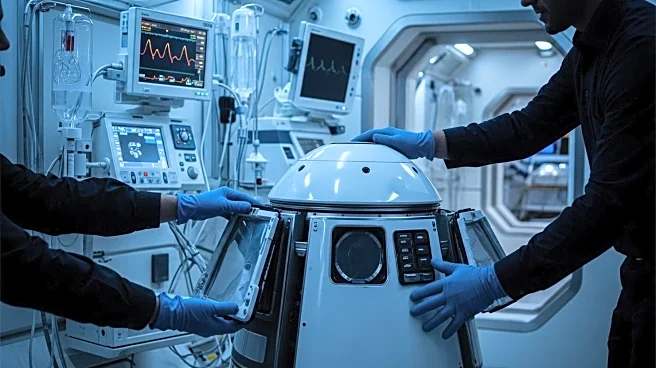What's Happening?
NASA astronauts aboard the International Space Station are conducting cardiac health research and unpacking supplies from the Cygnus XL and Progress spacecraft. The crew is using ultrasound scans to study the effects of space travel on cardiovascular health, focusing on potential plaque buildup and aging-like symptoms in arteries. The research is part of the CIPHER human investigation, which compares health data from astronauts before, during, and after spaceflight. Additionally, the crew is unpacking science experiments and supplies delivered by the Cygnus XL cargo craft, including portable science freezers and cloud computing hardware. The Progress spacecraft has also delivered food, fuel, and supplies.
Why It's Important?
Understanding the impact of space travel on human health is crucial for the safety and success of long-duration missions, including potential future missions to Mars. The cardiac research conducted on the ISS provides valuable data that can inform medical protocols and countermeasures to protect astronauts' health. The delivery of new science experiments and supplies supports ongoing research and technological advancements aboard the ISS. These activities contribute to NASA's broader goals of human space exploration and the development of sustainable living conditions in space. The findings may also have implications for medical research on Earth, particularly in understanding cardiovascular health.
What's Next?
The crew will continue their cardiac health research and unpacking activities, with plans to conduct further experiments using the newly delivered supplies. The data collected from the CIPHER investigation will be analyzed to refine health protocols for astronauts. The crew will also prepare for upcoming spacewalks and continue maintenance activities aboard the ISS. NASA will use the findings from these studies to enhance the safety and effectiveness of future space missions. The agency will also focus on improving the efficiency of data transmission and communication systems on the ISS.










